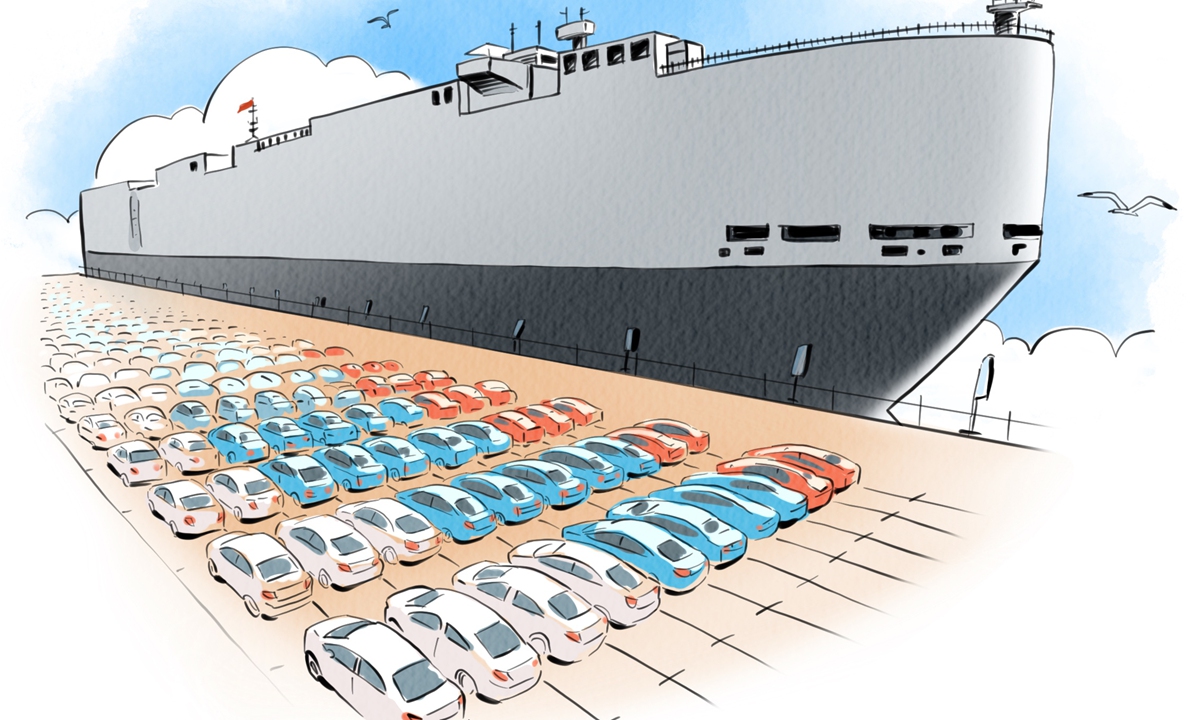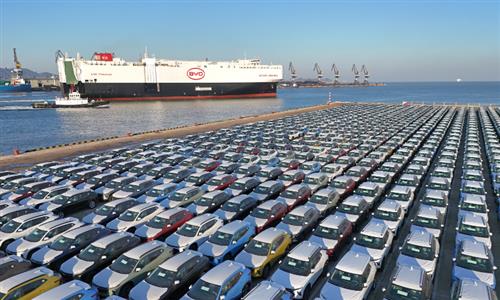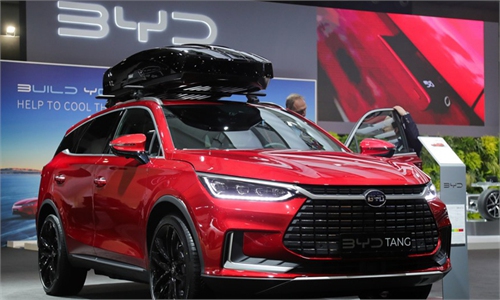
Illustration: Liu Rui/GT
Approximately a fortnight ago, a large ro-ro ship loaded with more than 5,000 electric vehicles (EVs) from a port in southern China arrived in ports in the Netherlands and Germany.
The 200-meter BYD EXPLORER NO.1 crossed the Strait of Malacca, sailed across the Indian Ocean, rounded the Cape of Good Hope at the southern tip of Africa, and finally entered European waters.
Its trajectory was exactly opposite to the 40-odd battleships that set sail from Britain to China 184 years ago, sparking the infamous Opium War in 1840.
China's Qing Dynasty (1644-1911) was defeated, the door to the market was blown open by the British Empire's gunboat policy, opium-laden cargo ships traveled unhindered from then on and the whole country was shattered.
How times have changed. China's global ascent and the developmental trajectory of the United Kingdom have diverged significantly. BYD's significant progress does not involve military prowess but aligns with global trade regulations, penetrating the European market with a range of EVs that meet European environmental sustainability and affordability standards while maintaining high quality.
Some European parliamentarians and media are calling for a boycott of Chinese-made EVs. However, what Europeans should be focusing on is the positive impact that merchant ships sailing from China to Europe more than 180 years later are having on the world.
Even today, Europeans' understanding of the Opium War of 1840 is still stuck on the perception that the trigger of that war was the opium trade, and the core was the trade imbalance between China and Britain. To put it bluntly, the British believed that they were making a small profit while the Chinese were making a large profit, and that was why the war with China took place.
This is a fundamental misinterpretation of the nature of the expansion of the Western powers that began 500 years ago, and this misinterpretation has persisted to this day.
The nature of capital is to expand, and the rise of the British Empire was supported by this expansion, which in turn was fueled by forceful plunder, colonization and war. The powers' expansion was inherently linked to war, as the two were essentially synonymous with each other.
The British Empire expanded globally through ships. Western nations made ships for transporting opium and goods to China, as well as warships, which were built concurrently and sailed in the same direction.
Based on such historical experience, many scholars in the West have always believed that the rise of China will surely follow the same path and will inevitably lead to conflict and war. They have never had the historical experience of a peaceful rise in practice, much less in theory. This historical view of the country's rise still determines their attitude and stance toward Chinese manufacturing.
China's car exports leaped to the world's top spot for the first time in 2023, marking a landmark change in global manufacturing.
BYD's big ship has sailed to Europe, and it is also going to open a production plant in Europe.
BYD has planned to secure eight of its dedicated ro-ro ships, capable of carrying 7,000 EVs without the need for cranes, within two years. All of this development is a result of globalization and China's commitment to peaceful development.
The era of war-driven imperial expansion is over, and as China and Chinese manufacturing expand globally, the likelihood of war is decreasing rather than increasing.
While conflicts arising from trade may still occur, there is a growing potential for disputes to be resolved through peaceful and cooperative means. The key is if the West can move beyond a worldview centered on power struggles for dominance, in order to understand and engage with China's rise and collaborate with China to establish a new order of relations that can provide development opportunities for more developing countries.
The author is a senior editor with People's Daily, and currently a senior fellow with the Chongyang Institute for Financial Studies at Renmin University of China. dinggang@globaltimes.com.cn. Follow him on X @dinggangchina



